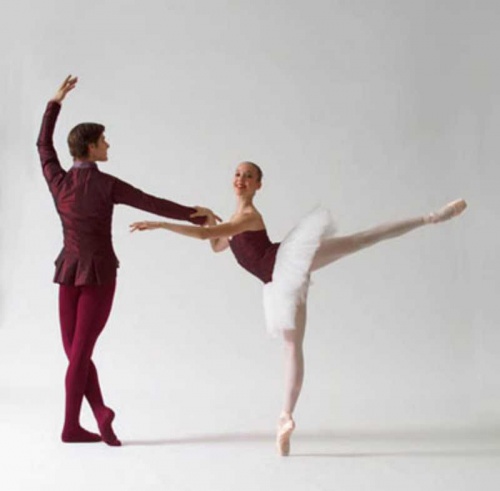NZSD Graduation Season 2006
Te Whaea National Dance and Drama Centre, 11 Hutchison Rd, Newtown, Wellington
15/11/2006 - 25/11/2006
Production Details
New Zealand School of Dance
Graduation Season 2006 offers a sweeping view of the New Zealand School of Dance’s past and present with a mesmerizing glance into the future. We celebrate the 250th anniversary of Mozart’s birth with George Balanchine’s intoxicating Divertimento No. 15 and continue the exhilaration of Balanchine’s work with his stunning pas de deux, Tarantella.
The programme also includes Michael Parmenter’s visually stimulating The Bach, Val Caniparoli’s emotionally charged Aria and Robert North’s Troy Game, pulsating with wit and masculine energy.
Additionally there will be two searing new works from Shona McCullagh and Malia Johnston whose contemporary sensibilities are sure to excite you.
Hailed by The NZ Listener as a ‘dance highlight of the year’, this is an event not to be missed!
All works will be presented at each graduation season performance. Casting is subject to change.
Dates: Wednesday 15 November – Saturday 25 November (no show Monday 20 Nov)
Times: Evening performances at 7.30pm. 2pm matinee only Sunday 19 Nov.
Tickets: $15.00 Adults/Waged,
$12.00 Concession/Students/Seniors/Friends of Te Whaea
Venue: Te Whaea Theatre.
Te Whaea: National Dance and Drama Centre, 11 Hutchison Road, Newtown, Wellington
Bookings: Bookings available from 16 October, 2006 on +64 4 381 9254 (automated line)
Dance ,
Approximately 2hrs 10mins (includes two 15 minute intervals)
Contemporary Trojans & ballet works stand out
Review by Jan Bolwell 17th Nov 2006
The New Zealand School of Dance’s graduation season is one of the most enjoyable dance events of the year. The juxtaposition of ballet and contemporary dance works helps to illuminate the contrasting qualities of both, and is immensely stimulating from an audience point of view.
That the students are well trained and impeccably presented is now a given, but one is always on the lookout for the gifted dancer, the star in the making. None is obvious amongst the women, and in fact it is the men who leave the most lasting impression.
They are helped in this by the presentation of Troy Game, an old warhorse from the early days of London Contemporary Dance Theatre. I remember seeing this work when it was first staged in London in 1974. Robert Cohan’s troupe were busy introducing the British public to American style contemporary dance and Robert North’s Troy Game, an old fashioned but easily accessible work, is an ideal vehicle. Athletic young men strutting their stuff has instant appeal, and the students from the school have a good crack at this energy sapping dance while embracing eagerly the humour and competitive nature of the dancing.
The rest of the contemporary works on the programme fails to make a similar impact. Dark Matter by Malia Johnston, based supposedly on the notion of dark matter in the universe, leaves this reviewer in the dark. It lacks form and its choreographic invention is limited to dancers writhing around in lit squares of light or moving up and down tram lines with repetitive movement that lack any dynamic variation. The students perform the work well enough but one has to ask – to what end?
Shona McCullagh’s Absolution, to a score by composer of the moment John Psathas, is a much more coherent piece of choreography performed with a fine intensity by Rhiannon Spratling and William Barling. (By the way I think all New Zealand choreographers should stop placing dancers inside squares of light – I am sick to death of seeing them.) However the work feels like a beginning, a fragment of a much longer dance where the complexities of the characterisations will be allowed to grow. The ending feels too pat, too abrupt.
The Bach, created in 2002 by Michael Parmenter for the students at Unitec, is a good choice. It has a simple clear structure that mirrors closely the structure of Bach’s music (Cantata No.66). The students are well drilled but somehow the performance lacks subtlety and energy – perhaps a feeling of release? It seems underpowered, as if the dancers are painting by numbers.
This year the ballet repertoire is the strongest part of the programme. Tarantella by Balanchine is delightfully performed by Kalena Muir and Rory Fairweather-Neylan demonstrating a sharp, sparkling technique. Already Dusk by Val Caniparoli, to a Brahms score, is given an elegant rendition by Ingrid Gow and Wiliam Pratt with a memorable and beautifully controlled ending.
Mikhail Ovcharov is a dancer to watch out for in the future. He has a strong muscular body and a nicely understated technique that draws in an audience towards him. He makes the most of his opportunities in the solo dance Aria choreographed by Val Caniparoli to the music of Handel.
The standout work of the evening is Divertimento No.15 by George Balanchine to the Mozart score of the same name. In the past the students have often carried the strain of performing Balanchine’s demanding choreography into the face, neck and shoulders. None of that is evident in this staging of a glorious Balanchine masterwork.
The musical intelligence behind the choreography is breathtaking, and how wonderful that for the first time the school is able to bring the complete work to the stage. Plaudits must be given to rehearsal director Lidiya Klymenko who has enabled these sixteen students of the school to present Divertimento No.15 with such style, panache and confidence. It is worth going to the 2006 graduation season to see this work alone.
Copyright © in the review belongs to the reviewer





Comments